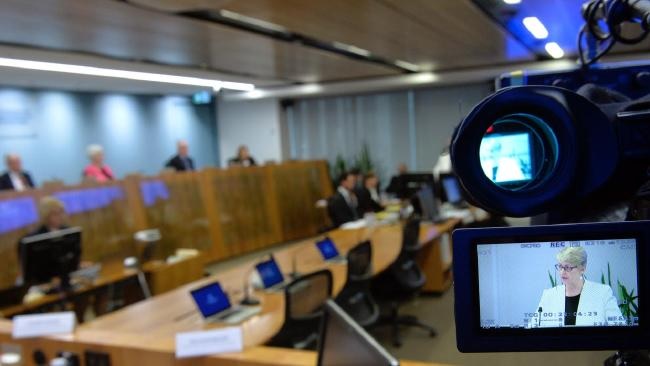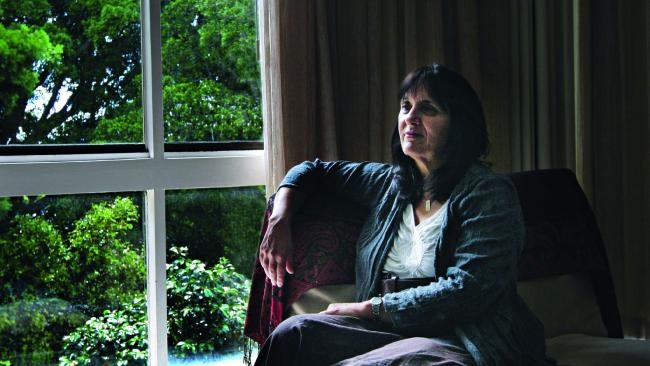|
Child institutional abuse probe’s approach under fire By Richard Guilliatt http://www.theaustralian.com.au/news/nation/child-institutional-abuse-probe-slammed-as-ethically-dubious/news-story/3a9dd02d9e240e2e449866304d9d7f8b [See also ‘Those events never happened', by Richard Guilliatt, The Australian, September 30, 2017.]
The $500 million royal commission into institutional child abuse is promoting “ethically dubious” and potentially harmful ideas about the counselling of sexual abuse victims and the reliability of their testimony, senior experts in the field have warned. Several leading national and international researchers say the long-running inquiry has adopted a misguided victim-advocacy role and published misleading, inaccurate research that could potentially undermine the $4 billion redress scheme for abuse victims. Richard Bryant, director of the Westmead Trauma Stress Clinic, said the royal commission appeared to be advocating counselling practices that were potentially dangerous and contradicted guidelines endorsed by the National Health and Medical Research Council. His concerns were echoed by several experts in psychology, including emeritus professor Don Thomson, chairman of the ethical guidelines committee of the Australian Psychological Society, and Elizabeth Loftus of the University of California Irvine, an internationally renowned memory researcher who described some of the ideas endorsed by the commission as “brain babble”. Harlene Hayne, vice-chancellor of the University of Otago in New Zealand, said one of the commission’s recent reports contained “a level of error that would probably cause you to fail an undergraduate memory course”. The criticisms centre on two royal commission reports, one on the proposed compensation scheme, the other examining the effects of childhood trauma on memory. The compensation report draws extensively on the advice of Cathy Kezelman, president of the victim-advocacy organisation the Blue Knot Foundation and co-author of a 120-page counselling guide that advocates “trauma-informed care”, an approach the royal commission adopted. Its central idea is that counsellors focus on their clients’ underlying trauma rather than their presenting symptoms. Dr Kezelman is a former GP who underwent psychotherapy in her 40s and developed multiple personalities while recovering “repressed memories” of being raped and tortured as a child by her father and a pedophile cult led by her grandmother.
She cites her nine years of psychotherapy as an example of trauma-informed care, and has forged a close relationship with the royal commission, which praised the clinical expertise of her organisation in its report and suggested trauma-informed care could play a valuable role in the compensation scheme. In today’s Weekend Australian Magazine, Dr Kezelman’s brother, Claude Imhoff, an emergency physician, refutes his sister’s story of pedophilia, saying he lodged a formal complaint against her psychologist in 2012, arguing that her treatment triggered “false memories” of abuse and caused immeasurable harm to her and his family. The issue of whether people can entirely forget incidents of childhood abuse and then recover repressed memories of them years later has split the psychotherapy professions in recent decades, with many experts arguing there is no empirical evidence to support a phenomenon. Professor Bryant said the trauma-informed approach advocated by Dr Kezelman directly contradict best-practice guidelines endorsed by the NHMRC, which encourage counsellors to focus on treating symptoms. He said her counselling guidelines advocate ethically dubious and potentially dangerous therapy techniques such as helping clients retrieve “implicit memories” that are hidden from consciousness, a technique that caused a rash of false and bizarre reports of child abuse in the 1980s and 90s. “Does the royal commission really want to advocate policies that are contrary to the NHMRC?” he asked. “If funds are going to be made available for people who have been damaged, I think it would be ethically irresponsible, and would further compound the damage to the victims, if the system promoted or even -allowed psychological services that are not evidence-based.” Professor Loftus described aspects of the guidelines as “brain babble”, saying if they were widely adopted, “I foresee a world of hurt in Australia’s future”. Dr Kezelman defended the guidelines, saying they had been endorsed by the Royal Australian and New Zealand College of Psychiatrists and the Royal Australian College of General Practitioners. The chairman of the RANZCP’s faculty of psychotherapy, Michael Daubney, said current counselling methods often did not meet the complex needs of people who had suffered extensive interpersonal abuse in childhood, a gap that trauma-informed care could fill. The royal commission report stipulates it is not advocating any particular counselling model for the compensation scheme, but recommended Dr Kezelman’s organisation be involved in accrediting counsellors for the scheme: she now sits on the advisory panel devising it. The inquiry’s chairman, judge Peter McClellan, has described her as an “old friend” of the commission and appeared with her at conferences and media events, including one scheduled for today when Dr Kezelman will introduce the judge’s speech to a psychotherapy conference in Sydney. The other royal commission report to have attracted strong criticism is a 185-page review of the effects of childhood abuse on memory, which states among its findings that young children are not highly suggestible and do not appear to be more susceptible to misinformation than adults. Professor Thomson said these assertions are contradicted by decades of research, a view supported by Professor Hayne and Deirdre Brown, from Victoria University of Wellington, two leading child psychology researchers. Professor Hayne described the report as sloppy, inaccurate and potentially harmful to the cause of abuse victims. She was concerned a government inquiry was promoting such an erroneous, falsely optimistic view of children’s reliability, potentially undermining years of study into their vulnerabilities as witnesses. “Maybe they misguidedly have the view that this is an advocacy exercise,” she said. “I can see how this report could be misused and would lead to greater harm to children, if it leads to the belief they don’t have special needs as witnesses.” The lead author of the report, Jane Goodman-Delahunty of Charles Sturt University, said she was aware some researchers contested its findings but these reflected robust recent research showing children were not as suggestible as earlier studies had reported. She said one aim of the report was to highlight ways to address the high incidence of “potentially wrongful acquittals” in child sex abuse cases, although it acknowledges the importance of careful, non--suggestive questioning of children. In a prepared statement, the royal commission said it had commissioned a large number of research reports, and the report co-authored by Professor Goodman-Delahunty reflected the views of the authors and not necessarily the views of the commission itself.
|
.
Any original material on these pages is copyright © BishopAccountability.org 2004. Reproduce freely with attribution.

